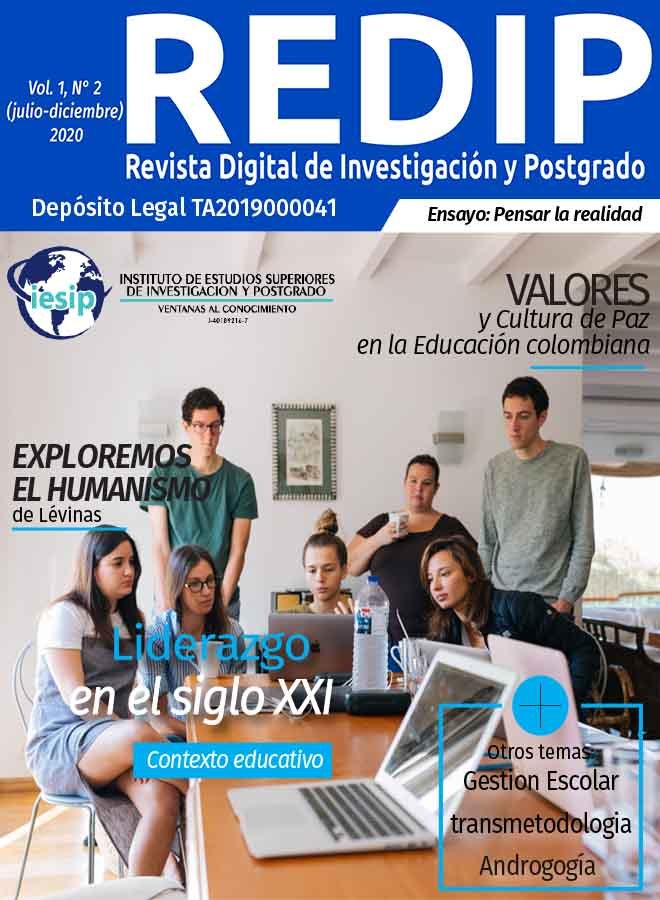The andragogic and autopoietic in the educational model of the university of the 21st century
DOI:
https://doi.org/10.59654/vgpypq36Keywords:
Andragogy, autopoiesis, university, educational modelAbstract
The adult consolidates his learning and the experiential field; it is an essential element in that learning situation. The context, the labor relations, its critical capacity, of reasoning and the human experience; for that reason the anthropological relation that is made in this work. Added to this is the fact that people have renewed knowledge and interpersonal communication processes, dialogue, consensus and its evolution and the early dissemination of knowledge as a synonym for productivity, solidarity, participation and spontaneous collaboration. These are core elements of the andragogy and self-poiesis of the 21st century University that need to be considered. Andragogical education has a fundamental role in the formation of students, in which the aim is not only to prepare them to carry out a profession, but also to provide formative citizenship for daily life and coexistence. In this sense, the autopoetic does not go unnoticed. The university as a social organization can be attributed the autopoietic vision since people are in capacity to organize learning according to the real need, to develop themselves in a social system.
Downloads
References
Adam, F (1977). Andragogía. Universidad Nacional Experimental Simón Rodríguez. Caracas. Publicaciones de la Presidencia.
Adam, F (1987). Andragogía modelo educativo para el adulto. Editorial INSTIA.
Benne, K. (1995). De la Pedagogía a la Antropogogía: un reto para los profesionales de la educación. Informática educativa 8 (3), pp. 183-210. Traducido de Benne, K.D. (1981) From Pedagogy to Antropogy Society of professors of education: Sixth Annual DeGarmo Lecture. [En línea]. http://www.colombiaaprende.edu.co/html/mediateca/1607/articles-127990_archivo.pdf
Guarisma, G. (2009). Métodos de Investigación. Fondo editorial UBA. Maracay
Maturana, H. (1997) La Realidad: ¿Objetiva o Construida? Editorial Anthropos., Barcelona-España.
Méndez, J. (2013). Guía Holopraxica. Universidad católica del Táchira.
Méndez, J (2003). Planeación y Administración. Guía Publicada. UPEL-Rubio. Táchira – Venezuela
Méndez, J. (2012). La deontología del saber para la educatividad en el docente investigador. Ponencia Congreso Regional de Investigación Educativa. “educar para la sabiduría y la esperanza”. Universidad Católica del Táchira.
Morales, J (2001). Didáctica Andragógica. Buenos Aires. Argentina: Editorial ALDIBE, S.L.
Ramos, M. (2008). Para Educar en Valores, Teoría y Práctica. Trabajo de Tesis Doctoral publicado. Universidad de Carabobo.
Roger, J. (2004). El Proceso de convertirse en Persona. Barcelona, España: Editorial Pardo.
Rojas, D y Mora, R. (s/f). Estrategias Docentes para la Promoción de Valores en el Contexto Escolar.
Sanjurjo, L y Vera, M (1994). Aprendizaje Significativo y enseñanza en los niveles medio y Superior. Argentina: Editorial Homo sapiems.
Torres (2008). La Horizontalidad y la Participación en la Situación de Aprendizaje. ULA. Concejo de Publicaciones. Mérida – Venezuela
Watzlawick P. La realidad inventada, Ed. Gedisa, Argentina, 1988.Refer
Villegas, C. (2006). La investigación: Un enfoque integrador transcomplejo. Ediciones Universidad Bicentenaria de Aragua.
Villegas, C. (2011). Líneas de Investigación. Ediciones Universidad Bicentenaria de Aragua.
Downloads
Published
Issue
Section
License
Copyright (c) 2020 Revista Digital de Investigación y Postgrado

This work is licensed under a Creative Commons Attribution-NonCommercial-ShareAlike 4.0 International License.
Esta licencia permite a los reutilizadores distribuir, remezclar, adaptar y desarrollar el material en cualquier medio o formato únicamente con fines no comerciales, y solo siempre que se atribuya al creador. Si remezclas, adaptas o construyes sobre el material, debes licenciar el material modificado bajo términos idénticos. CC BY-NC-SA incluye los siguientes elementos:
![]() POR: se debe dar crédito al creador.
POR: se debe dar crédito al creador.![]() NC: Sólo se permiten usos no comerciales de la obra.
NC: Sólo se permiten usos no comerciales de la obra.![]() SA: Las adaptaciones deben compartirse en los mismos términos.
SA: Las adaptaciones deben compartirse en los mismos términos.











